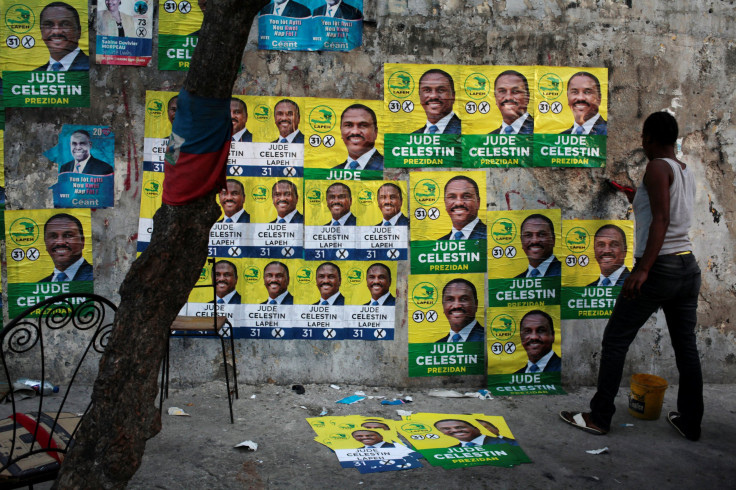Haiti Election 2016 Guide: Presidential Candidates, Latest Polls And Key Issues Ahead Of The Sunday Contest

After almost 11 months of repeated postponements, Haiti is set to finally vote on a new president on Sunday. The United States has provided financial support for the election process and has also issued a statement calling on local authorities to hold accountable anyone engaging in electoral intimidation and violence.
Haitians initially went to the polls for a first-round vote in October 2015. However, after numerous postponements to a runoff because of allegations of voting irregularities and protests, the results of the first round were scrapped altogether in June. An investigation found voting cards being sold to the highest bidder and deceased individuals on the voting list.
A rerun was then set to be held on Oct. 9 before being postponed once again due to the devastation wrecked by Hurricane Matthew.
Haiti’s Provisional Electoral Council is adamant that the election will go ahead on Sunday, despite the country still reeling from the hurricane that struck on Oct. 4. As well as resulting in the death of at least 546 people, the storm has left more than 141,000 still living in shelters. Meanwhile, violent clashes have taken place over the distribution of aid.
There are fears over how fair elections can possibly take place in such circumstances.The Provisional Electoral Council has said there will be more than 4,000 observers out across the country on Election Day. Another challenge has been replacing the thousands of voter ID cards that were lost during Matthew.
Haiti’s governance has been in a state of disarray since the initial postponement of the runoff election in January. That meant that there was no replacement in place when then-President Michael Martelly, a former musician with the stage name Sweet Micky, was constitutionally required to leave office in February. Instead, an accord placed a temporary government, led by President of the Senate Jocelerme Privert, in power for 120-days. But that mandate expired in June without a solution being achieved, meaning Privert remains in provisional control.
The lack of direction and consensus has created a power vacuum in a country battling not only the effects of Hurricane Matthew, but also the Zika virus, drought and the worst food crisis in 15 years. The poorest country in the Western Hemisphere, still reeling from a devastating earthquake in 2010, has seen its economy stagnate amid the political uncertainty.
A full 27 candidates will take part in the election on Sunday. Jovenel Moïse, of the Tèt Kale (Bald Headed) Party, which led the country for the previous five years under Martelly, came out on top in most recent polls held last month with 20.5 percent in a cellphone poll conducted by Integrated Communications and Research. There is little faith in opinion polls in Haiti, however, especially with such unrest in the country. Another poll around the same time showed Jude Célestin, who was second behind Moïse last October, with a commanding advantage of close to 19 percentage points.
Célestin, of the left-leaning Alternative League for Progress and Emancipation of Haiti, this week told voters on the campaign trail that “for five years [the previous ruling party] did nothing for you” and pledged to rebuild the country’s infrastructure.
Only two other candidates look to be in the running -- anti-establishment candidate Jean-Charles Moïse of the Platform Pitit Desealin party and Maryse Narcisse of Fanmi Lavalas, the party of Haiti’s first democratically elected president in 1991, Jean-Bertrand Aristide.
If no candidate receives a majority in the first round of voting, a runoff is scheduled for Jan. 29, 2017.
© Copyright IBTimes 2024. All rights reserved.





















